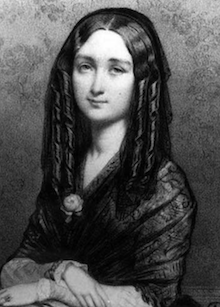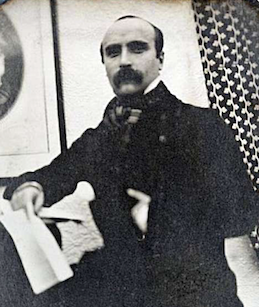A particularly well-read member of my staff of thousands has alerted me to the fact that on a Friday night at 11 o’clock, August 26, 1853, Gustave Flaubert wrote this letter to his on-again-off-again paramour Louise Colet, a poet and author, roughly two years before their affair ended for good and nearly four before his chef-d’œuvre Madame Bovary was published.
“What seems to me the highest and most difficult achievement of Art is not to make us laugh or cry, nor to arouse our lust or rage, but to do what nature does — that is, to set us dreaming. The most beautiful words have this quality. They were serene in aspect, inscrutable. The means by which they act on us are various: they are as motionless as cliffs, stormy as the ocean, leafy, green and murmurous as forests, forlorn as the desert, blue as the sky. Homer, Rabelais, Michelangelo, Shakespeare and Goethe seem to me pitiless. They are unfathomable, infinite, manifold. Through small apertures we glimpse abysses whose somber depths turn us faint. And yet over the whole there hovers an extraordinary tenderness. It is like the brilliance of light, the smile of the sun; and it is calm, clam and strong.” — Gustave Flaubert
According to bellitumsblog: “The characterisation of Emma borrowed heavily from Louise Colet and Ludovica Pradier, a woman who had become quite notorious in Paris. Ludovica was the wife of the sculptor in whose studio Flaubert had first encountered Louise. All hell broke loose when Colet recognised herself as Emma provoking her to retaliate with her own account of the liaison. Her novel Lui was serialised in 1859. Flaubert and friends were characteristically sneery in their reactions. Colet unleashed all her literary frustrations and sense of injustice in this work.“







An insightful perspective on art worth sharing!